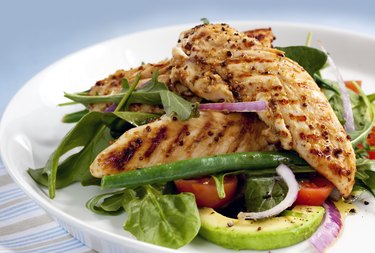
The no concentrated sweets diet excludes all sources of simple carbohydrates and refined sugars, according to Springhill Medical Center. Because it has no other restrictions, this is considered medically as a regular diet. It may be beneficial for some health conditions and for weight loss. To follow this diet effectively, you'll need to eat fresh foods and read labels on commercial products. Before making any dietary changes, speak with your physician.
Blood Sugar
Video of the Day
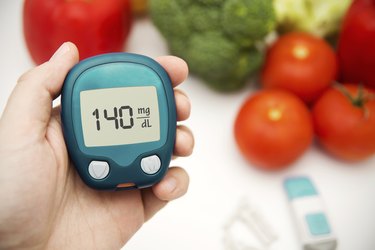
Blood sugar rises when you consume large amounts of concentrated sweets, notes the "Florida Medical Nutrition Therapy Manual." Eliminating concentrated sweets helps regulate blood sugar levels, and this may be a suitable plan for people who have problems with weight control or who have pre-diabetes. Pre-diabetes involves higher-than-normal blood sugar, but not high enough to qualify as diabetes. Nevertheless, people with this condition are at high risk for type 2 diabetes if they do not make lifestyle changes. Being overweight is a significant risk factor for developing type 2 diabetes.
Video of the Day
Weight Loss Surgery

In addition to benefits for weight loss and for people with pre-diabetes, a no concentrated sweets diet also is helpful for patients after adjustable gastric banding and sleeve gastrectomy surgery for weight loss, notes South Miami Hospital. Ideally, continue this diet from the clear liquid diet immediately after surgery through the gradual transition to regular food, and as a permanent lifestyle change if your doctor recommends it. It can help with weight loss and prevent regaining weight.
Foods to Avoid
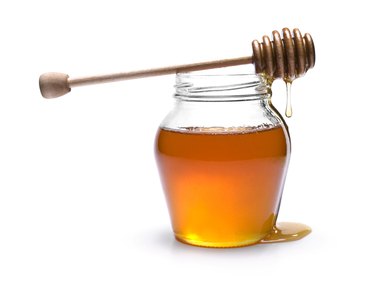
Avoid eating sugar, honey, regular syrup, molasses, and regular jam and jelly on this diet, advises Springhill Medical Center. Commercial foods containing corn syrup, high-fructose corn syrup, maltose, dextrose and sorbitol or mannitol are off limits. You should not eat candy, pie, cake, cookies, doughnuts, gelatin, pudding, custard, yogurt, frozen desserts or cereals that are sweetened with any of these substances. Regular soda, flavored milk, fruit drinks and fruit canned in syrup also are not allowed.
Foods to Include
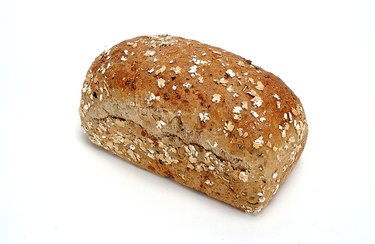
The no concentrated sweets diet should be a balanced plan. Include whole-grain breads and unsweetened cereals, fruits and vegetables, meat, poultry, fish and dairy products, advises Nutrition and Diet Counseling Associates. Add more high-fiber foods to your diet in place of the concentrated sweet foods.
Additional Guidelines
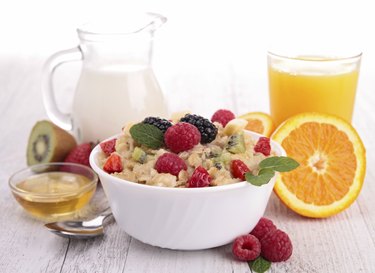
Additional guidelines for the no concentrated sweets diet include eating at least three meals per day, evenly spaced throughout the day, as noted by Nutrition and Diet Counseling Associates. Don't go long periods without food. In addition, achieving and maintaining your desired weight is important for any of the health conditions that call for a no concentrated sweets diet.